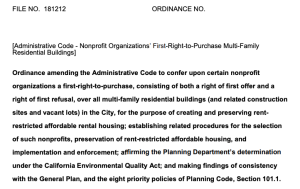The attorney for fired Feed The Children (FTC) Founder Larry Jones plans to file a wrongful termination lawsuit today in Oklahoma County District Court, in addition to seeking a restraining order preventing FTC from using Jones’ image and likeness in fundraising activities.
Jones is the face of FTC fundraising efforts, featured prominently in direct mail and television advertising making pleas for donations to feed children around the world. The organization mails millions of pieces of mail each year and likely has millions of pieces in the mail for the holiday giving season.
The restraining order could be heard by a judge this week, said attorney Mark Hammons. Jones, who founded FTC 30 years ago, was terminated this past Friday by the board of directors in a year-long saga over control of the charity that had revenues of $1.18 billion last year.
Hammons said the Oklahoma City, Okla., charity continued to use Jones’ name despite requests not to, including a 2,000-piece mailing to major donors on Friday, after he was fired. “These are people who know and trust Larry Jones, and would contribute based on Larry Jones asking them to contribute. Frankly, it’s a fraud to send a letter on their behalf when they know Larry Jones is not with the organization,” he said. “We’re very troubled about that, and the fact that media advertising still is going on with his name and likeness,” he added.
FTC released a three-sentence statement late Friday night: “The board of directors of Feed The Children announced today that Larry Jones’ employment and office as president has been terminated effective immediately. … Travis Arnold, executive vice president and chief operating officer, has been named as interim president of Feed The Children. The board of directors will form a search committee to study and implement procedures to fill the position on a permanent basis.” An official at the charity said there would be no further comment.
While the charity did not give a public reason why Jones was terminated, Hammons said a faction of the board was looking for reasons to get rid of him.
The day before he was terminated, Jones went to court to stop the board of directors from using the charity’s funds to pay legal fees incurred during power struggle that was settled this summer. Hammons said Jones was not given copies of documents or redacted legal bills, despite being a board member of the organization, and was led to believe the legal expenses exceeded $250,000. “Even it were an appropriate expenditure, every board member is entitled to see it,” said Hammons.
Hammons was uncertain how much Jones paid for his legal fees in the court fight with the board, though he guessed they were “fairly significant.” He did not represent Jones in the earlier litigation.
Almost a year ago, Jones ousted several board members and replaced them with his own appointees who then voted to dismiss CFO Charity Tharp, COO Travis Arnold and General Counsel Larri Sue Jones (Larry Jones’ daughter), and an internal auditor. The former board members eventually reinstated by a judge before a settlement was reached in August that also reinstated the executives, with Jones giving up day-to-day operations of the charity but remaining as a fundraiser and spokesman.
The board also has been pushing for criminal prosecution of Jones for the installation of recording devices in FTC offices this past spring, Hammons said. He admits that Jones installed listening devices allegedly for the purposes of recording his own conversations with some key charity executives, but denied it was wiretapping. In Oklahoma, state law allows someone to record conversations in which they are a party. Jones allegedly sought to protect himself by recording conversations with people that he originally terminated but were reinstated to their positions earlier this year.
“The concern was he would say one thing and another story come out of meetings. It was essential that an accurate record of what was said…because he was dealing with people he frankly made a decision should not work for the organization,” he said.
No conversations were ever recorded, according to Hammons, because the devices did not work and were too cumbersome to get an accurate record. They were dismantled a few days after being installed in the spring. “No laws were broken, and there were good and logical reason for wanting to record those conversations,” he said. Jones is being represented by David Ogle against threatened criminal prosecution regarding the recording devices, Hammons said, although he doesn’t expect that to come to pass.
FTC has been hit with a slew of lawsuits this year. Hammons also is representing two finance employees who were terminated, accusing Tharp of not reporting tax liabilities to the state over the course several years. That’s in addition to a lawsuit filed earlier this year by two employees who believe they were terminated for reporting higher-level managers had engaged in inappropriate conduct through the use of emails.












